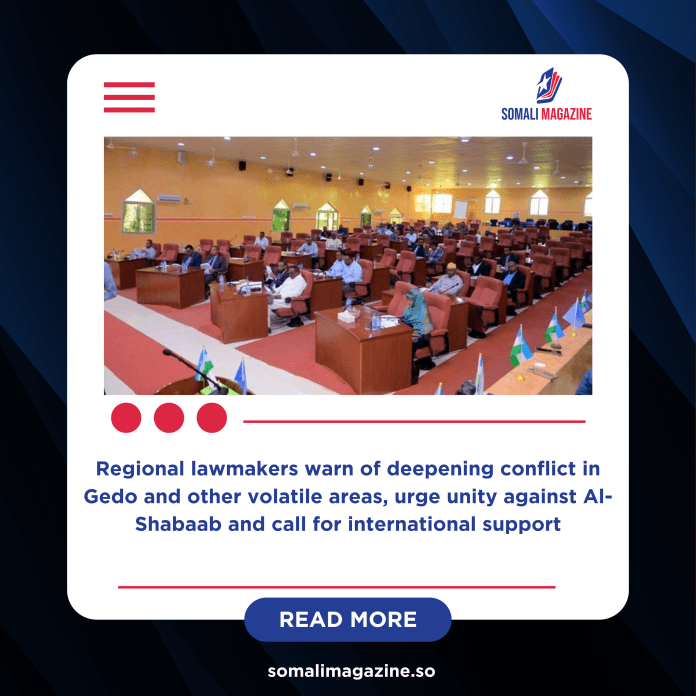Facebook Twitter (X) Instagram Somali Magazine - People's Magazine
Puntland’s regional parliament has openly accused Somalia’s federal government of stirring political and tribal tensions in several unstable regions of the country. In a resolution passed on Tuesday, Puntland lawmakers claimed that the federal government in Mogadishu is interfering in local affairs in regions such as Gedo, Sanaag, and Haylaan—actions they say could deepen divisions and threaten national unity.
The strongest criticism was directed at the federal government’s activities in the Gedo region, which is part of the federal state of Jubbaland. Puntland lawmakers described the situation there as a deliberate attempt by the central government to impose control through what they called “an illegal invasion.” They warned that these actions could spark further conflict, damage trust between federal member states, and increase the risk of a nationwide crisis.
Fighting in Gedo has intensified recently, particularly in the border town of Beled Hawo. In the last ten days alone, federal forces and Jubbaland-aligned troops have clashed four times. The deployment of Abdirashid Janan—a controversial figure and former Jubbaland security minister who now heads Somalia’s National Intelligence and Security Agency (NISA) operations in Gedo—has further fueled the tensions.
Puntland lawmakers say that having Janan lead federal operations in Gedo only adds to the friction and shows the government’s unwillingness to ease tensions in already fragile areas.
“The federal government must stop actions that provoke conflict in regions like Gedo,” read a statement from Puntland’s parliament. “These moves threaten peace among local communities and could cause more instability in areas already struggling to recover from conflict.”
The resolution called on other federal member states, especially Galmudug and Hirshabelle, to work together with Mogadishu to tackle the worsening security situation in central Somalia. Puntland emphasized that the ongoing political disagreements are giving Al-Shabaab—a terrorist group with strongholds in central and southern Somalia—more room to operate.
Puntland leaders warned that if federal and regional governments fail to unite, Al-Shabaab will continue to take advantage of the divisions to expand its influence and carry out attacks.
In its appeal, Puntland also urged the international community to step in and provide real support. They specifically asked for help in intelligence gathering and security operations, saying such backing would strengthen both the Somali federal government and its member states in their joint efforts to fight terrorism.
Puntland’s call for support highlights the ongoing challenge Somalia faces in building a stable, united government while battling both internal political rivalries and a persistent extremist threat. For years, federal member states like Puntland and Jubbaland have accused the central government of trying to undermine their autonomy and control local politics.
These tensions are not new, but the recent violence in Gedo and the sharp criticism from Puntland show that relations between Mogadishu and the regions are at a dangerous low point.
Puntland’s message is clear: without honest cooperation and respect between the central government and the federal member states, Somalia risks falling deeper into political chaos. The region’s lawmakers are calling for dialogue and unity, not division—warning that the country’s fragile progress could be undone if current tensions continue.
As Somalia continues its fight against Al-Shabaab and works toward national elections and political reforms, how leaders respond to these regional concerns will be critical to the country’s future stability

